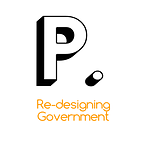In today’s digital world, we encounter numerous challenges that can leave us feeling vulnerable and overwhelmed. From cyberbullying and privacy issues to misinformation and online harassment, the internet presents dilemmas that are often hard to navigate. Yet, within these challenges lies an opportunity for personal growth, resilience, and empowerment.
In this blog post, I want to take you on a personal journey, sharing my own story of overcoming a significant online challenge. By sharing my experiences, I hope to highlight the importance of resilience and illustrate how we can discover empowering solutions in the face of adversity. My goal is to inspire and provide guidance to individuals navigating their own digital dilemmas, helping them confront these challenges with confidence and determination.
Back in 2018, after completing my secondary education, I harbored a passion for modeling as a part-time pursuit. I loved adorning myself in various attires, and will showcase them, considering my body as a masterpiece. Friends admired my fashion sense, often praising my appearances in different outfits. This interest led to modeling gigs for brands and as a vixen in music videos. I was once the face of a company, aspiring to feature on a billboard someday, although that aspiration didn’t materialize.
My happiness was short-lived when relatives started criticizing my posts, using degrading language and making unfounded accusations. “Ameanza umalaya akiwa mdogo” “hawezi fika mbali’ “Atakufa na ukimwi huyo”. Those words broke me, I really questioned a lot of things because if my own people could utter such hurtful words publicly, how would others perceive me? That marked the onset of online bullying.
People flooded my posts with negative comments, and some shared my pictures on pages that objectify and traffic women. I received unsolicited messages from men, some much older, seeking sexual relationships with me. Others openly made explicit comments on my page. I felt humiliated and objectified, stripped of my dignity and used as a target for their fantasies.
This overwhelming experience led me into self searching. I decided to take a break from social media to clear my thoughts, seeking support from my mother, who had always been a pillar of strength. Implementing measures such as closing my Instagram comment section, setting my account to private, and actively reporting and blocking malicious accounts became crucial in reclaiming control over my online space. In extreme cases, involving the police was necessary, and justice prevailed.
I remember one time people were trying to hack my account but I had taken a lot of measures like having the two-factor authentication so every time a person attempted to hack me I got a notification to verify if it’s me. Another time my phone got stolen but nothing was leaked because I managed to completely shut down my phone and involved the authorities.
People are always afraid of the police but they are really good people if you haven’t violated any laws. We should not take these threats lightly because out there people are really crazy. When someone threatens you, they mostly mean what they say and they can do it if you don’t act. I used to be stalked a lot and it was really scary.
A key lesson from this journey is that the internet doesn’t forget. Despite deleting content, remnants often resurface on other platforms. It’s a reminder that the internet tends to be judgmental, even for impactful endeavors like charity events, drawing unwarranted hate comments. I’ve learned to let go and not take every insult personally. Maintaining robust passwords, including two-factor authentication, has become pivotal in safeguarding my accounts from potential breaches.
One big lesson I learned from all this is that the internet never forgets. Despite deleting content, I always find some of the pictures on some platforms. I also learned that the internet will always be judgmental, even if you do something as impactful as a charity event, it will draw unwarranted hate comments from people. and because I want no negative energy I delete the comment and block them. I’ve learned to let go and not take every insult personally. Always using strong passwords, including two-factor authentication, has become pivotal in safeguarding my accounts from potential breaches.
In conclusion, my journey through the highs and lows of online life has taught me invaluable lessons. Despite facing cyberbullying, harassment, and judgment, I found the strength to rise above it. Taking control of my online space became crucial for my mental well-being.
Learning to adapt and make tough decisions, I decided to change my career path. While the scars of the past lingered, I chose to redefine my narrative by pursuing a career in journalism. This shift allowed me to channel my energy into making a positive impact on society and regain control over my narrative. Also it helped me make my online platform a place for me to showcase my abilities in the field that I’ve ventured in.
As I continue my journey, I advocate for online safety and mental well-being. The experience has shaped me into a more resilient and empowered individual. I share my story not only as a testament to personal growth but also as a source of inspiration for those facing similar challenges. By navigating the complexities of the digital world with determination and self-care, we can emerge stronger, wiser, and more empowered than ever before.
This blog is authored by Evelyn Peter, the 2nd place winner of the Digital Ambassador Program ‘Kalamu za Kidigitali’ Blog Competition, and edited by our dedicated team at Pollicy.
Pollicy established the Digital Ambassador Program (DAP) to empower youth with digital resilience skills on safety and security especially women in higher learning institutions.
The Digital Ambassador Program is proud to collaborate with The LaunchPad Tanzania, Tanzania AI Lab & Community, Uganda Institute of Information and Communications Technology, Centre for Technology Disputes Resolution, Internet Society Uganda Chapter, and Civil Rights Defenders.
